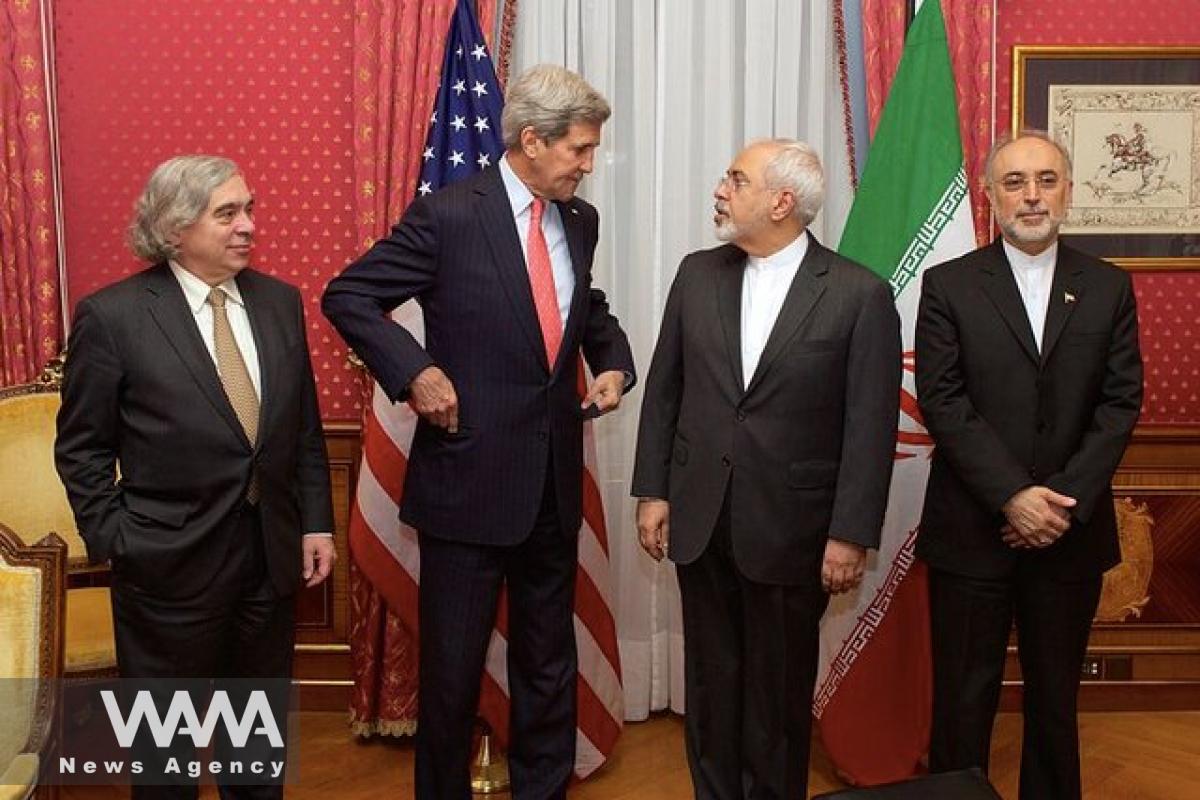WANA (Oct 11) – As the reinstatement of international sanctions against Iran effectively signals the formal collapse of the JCPOA, Ernest Moniz, former U.S. Secretary of Energy and a key figure in the original nuclear deal, has reintroduced the debate on Iran’s nuclear program with a bold proposal. In an article published in Foreign Policy, Moniz calls for the creation of a regional nuclear consortium involving Iran and other Middle Eastern countries—an initiative he claims could curb nuclear tensions while promoting peaceful nuclear energy across the region.
The End of the JCPOA and a New Idea Emerges
Moniz argues that the return of international sanctions highlights the final breakdown of the JCPOA, which had successfully restrained Iran’s nuclear activities until the U.S. withdrawal in 2018. He claims that Iran’s accelerated uranium enrichment to 60 percent and reduced cooperation with the International Atomic Energy Agency (IAEA) have made the deal irreparable.
Yet, Moniz emphasizes that military action or sanctions alone cannot resolve the issue. The only viable path, he argues, is a new framework based on regional cooperation: a “Middle Eastern Nuclear Consortium.”
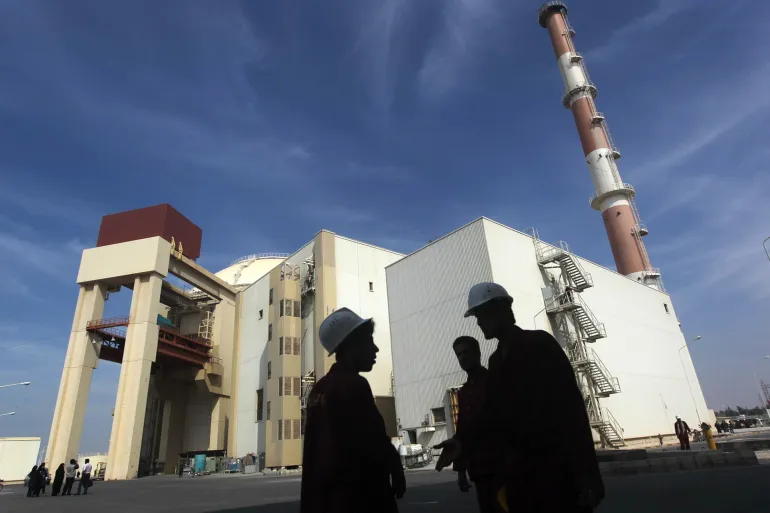

WANA (May 20) – Recently, some Western media outlets have reported on an alleged Iranian proposal to establish a nuclear consortium—but how accurate are these claims, and what is Tehran’s official stance? Western reports claim that during indirect talks with the United States, Iran suggested forming a consortium with multiple countries that would allow […]
Consortium: Cooperation or Control?
Under this plan, countries in the region—including Iran, Saudi Arabia, the UAE, Jordan, and Egypt—would jointly participate in the production and peaceful use of nuclear energy. According to Moniz, the nuclear fuel cycle would be distributed among multiple countries, preventing any single state from independently developing nuclear weapons.
This division of responsibilities—from uranium extraction to fuel production—would accelerate peaceful nuclear technology while raising the cost and difficulty of nuclear weapons development. Countries found violating the consortium’s rules could be removed, and their nuclear programs dismantled.
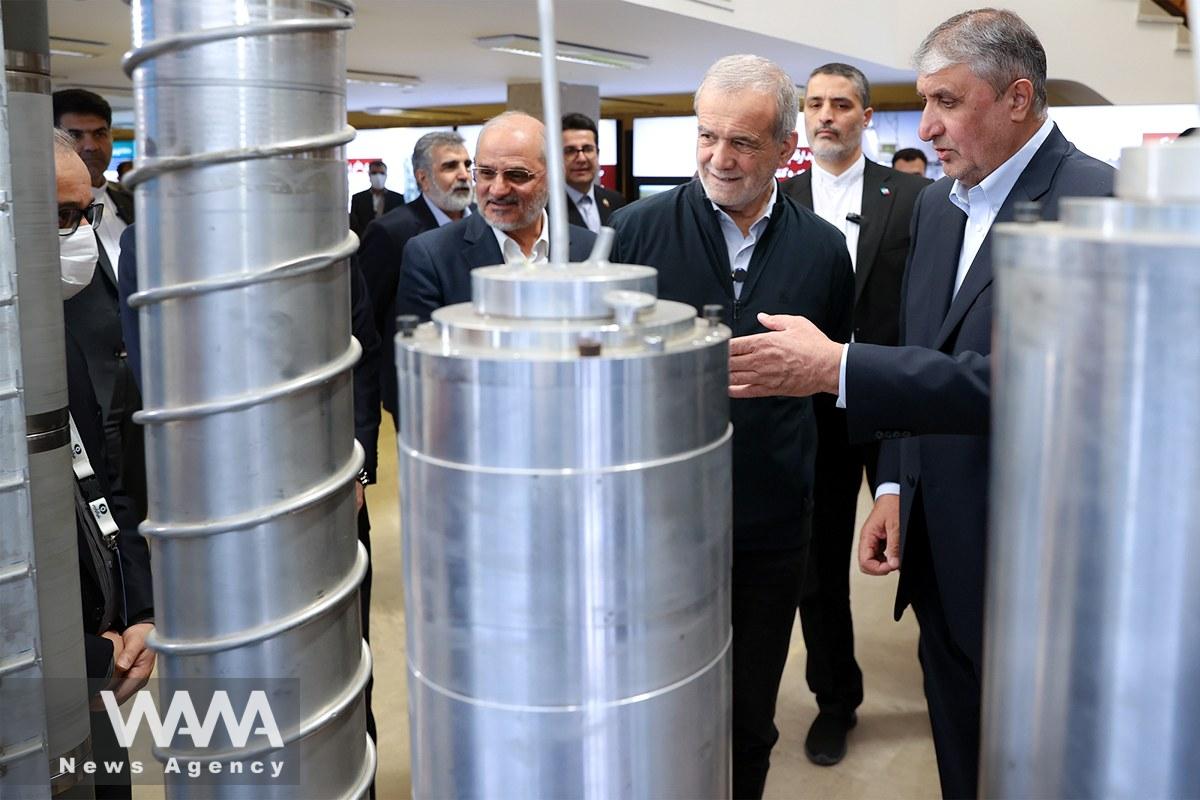

President of Iran, Masoud Pezeshkian, attended the National Nuclear Technology Day event at the Atomic Energy Organization of Iran on April 09, 2025. President. ir/ WANA News Agency
Iran’s Special Role: Limitation or Participation?
The most contentious aspect of Moniz’s plan concerns Iran. He argues that uranium enrichment should not take place on Iranian soil, but rather in a neutral location—potentially an island in the Persian Gulf or territory in Oman—under direct IAEA supervision.
“Iran has enriched over 400 kilograms of uranium to 60 percent, which has no reasonable civilian purpose. To prevent recurrence, enrichment must occur in an international facility outside Tehran’s direct control,” Moniz writes.
He also proposes regional nuclear fuel banks to ensure all member states, including Iran, have secure access to nuclear fuel. Meanwhile, Iran could temporarily continue limited enrichment (up to 5 percent) until the regional fuel cycle is fully operational. In exchange for halting enrichment on its territory and accepting enhanced transparency, Western countries would facilitate investment in Iran’s civilian nuclear energy program.
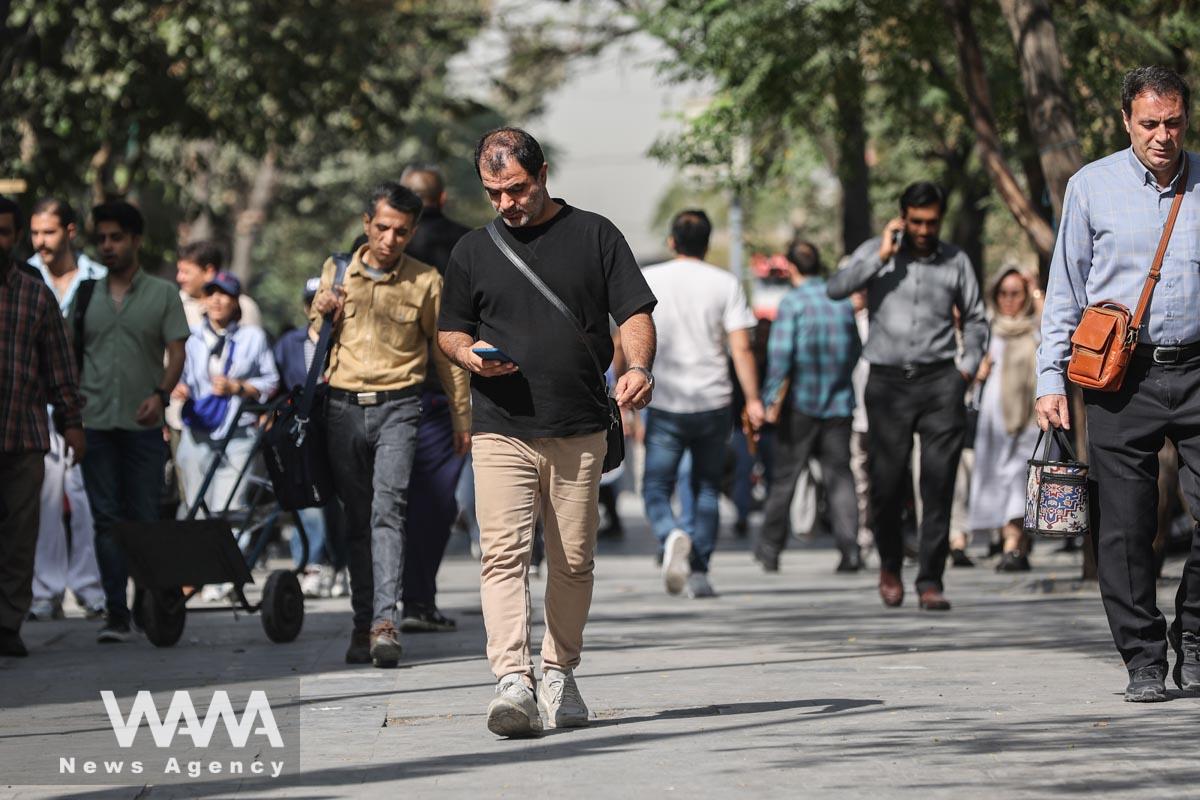

WANA (Sep 28) – Activating the snapback mechanism is not just the reinstatement of UN resolutions; it feels more like a warning light being switched on, whose message is being sent into Iran: “pressure, isolation, and crisis.” But the question is whether this move is merely a dormant legal dispute or part of a more […]
Silence on Israel’s Nuclear Arsenal
A notable criticism of Moniz’s proposal is the absence of any reference to Israel’s nuclear weapons. Previous Iranian proposals, such as the “Minaret Plan” by former Foreign Minister Mohammad Javad Zarif and ex-ambassador Mohsen Baharvand, emphasized a nuclear-weapon-free Middle East. Moniz’s plan, however, does not address Israel’s arsenal, which some analysts view as a one-sided U.S. approach.
Four Pillars of the Moniz Proposal
Moniz outlines the consortium’s foundation in four key areas:
Equal access to peaceful nuclear energy for all regional countries.
Guarantees against pursuing nuclear weapons through IAEA oversight.
Enhanced monitoring and verification for NPT-compliant states.
Technical and financial support from the U.S. and Western partners for reactor construction and technological development.
He asserts that this framework could serve as a model for international nuclear cooperation, increasing transparency and oversight across the Middle East.
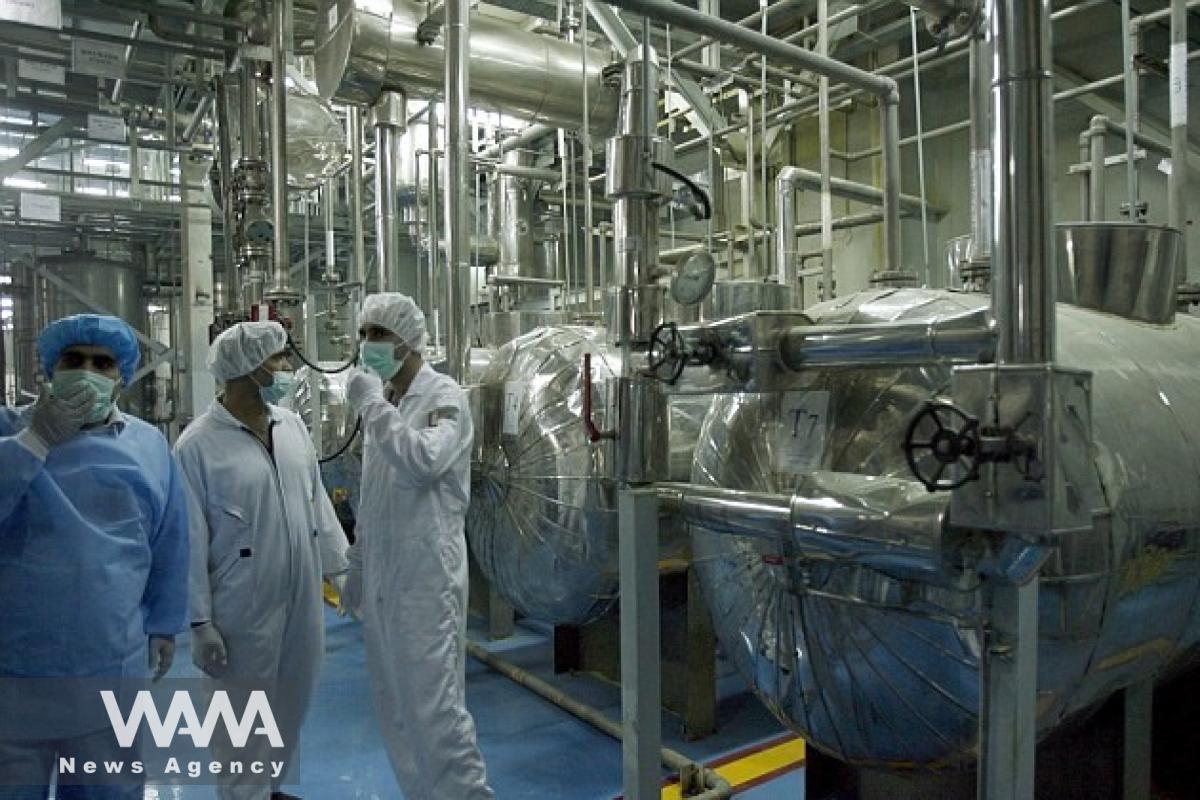

Iran’s Nuclear – WANA
Iran and the Difficult Road Ahead
Moniz stresses that implementing this plan requires tough decisions from all parties. From his perspective, Iran must dilute its 60-percent enriched uranium, return to JCPOA-level cooperation, and accept expanded inspections. In return, the U.S. and Europe would reopen pathways for investment in Iran, fostering the growth of civilian nuclear energy within the country.
However, Iranian officials have repeatedly affirmed that domestic enrichment is a red line and that Iran’s nuclear program remains entirely peaceful—a position echoed by IAEA Director General Rafael Grossi.
Moniz’s plan can be seen as an attempt to reimagine the JCPOA in a regional format: ostensibly promoting peaceful nuclear energy while structurally limiting Iran’s nuclear capabilities. Analysts note that if designed on the principles of mutual respect, non-discrimination, and equal participation, such multilateral cooperation could reduce tensions and enhance nuclear technology collaboration in the Middle East.
Yet, the fundamental question remains: Will Iran, having experienced what it considers Western breaches of trust in the JCPOA, agree to transfer parts of its most sensitive nuclear activities abroad?
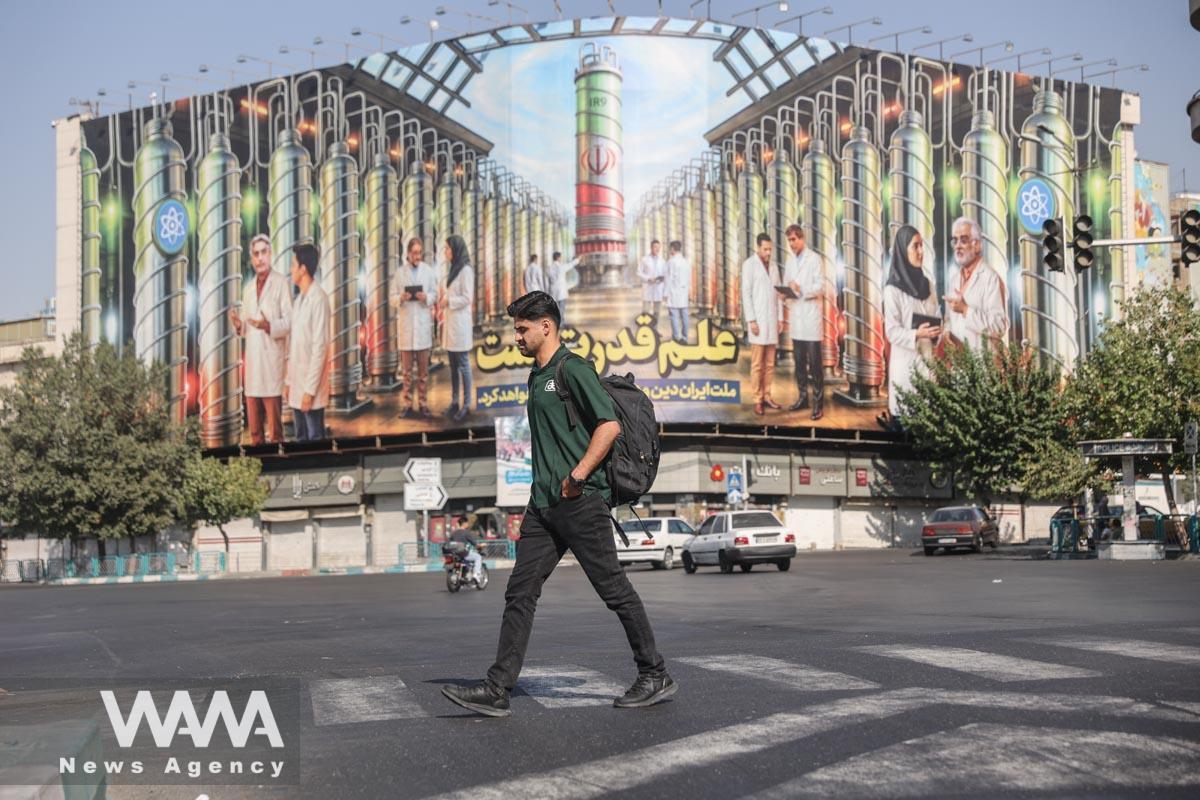

People walk past a billboard with a picture of nuclear scientists killed in Israeli strikes and Iranian centrifuges, on a street in Tehran, Iran August 29, 2025. Majid Asgaripour/WANA (West Asia News Agency)
